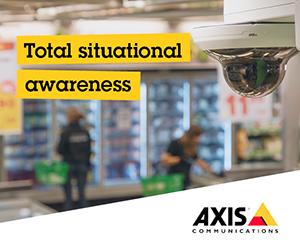retail environment
'Disguise the limit' as economic head winds push up price of push-out crime
The current cost-of-living crisis triggered by the post-pandemic rise in global energy prices and the economic impact of the ongoing war in Ukraine could witness a new wave of industrial level theft by organised retail crime gangs as well as pushing everyday shoppers towards dishonesty.
The so-called ‘cost-effective crimes’ of maximising payload versus minimising the risk of getting caught are seen as a clear and present danger to retailers as potentially more hard-pressed consumers swap their law-abiding behaviour for high-impact store theft to make ends meet.
One of the most authentic modus operandi (MO) is that of push-out crime where thieves load up shopping trollies and leave the store without paying.
It is already on the increase as a weapon of choice for organised retail gangs who use the trolley as an authentic camouflage to quickly exit stores and supermarkets.
But with rising inflation and average shopping bills putting the squeeze on consumers, experts are witnessing an increase in the cost of push-out crime from customers who may not have been previously flagged as store thieves.
One major supermarket has already seen the average cost of push-outs rise by eight per cent.
“Whether you are an organised retail criminal or a hard-pressed consumer, there is an obvious attraction of push-out crime,” said Matt Day, director of Gatekeeper Systems which last year commissioned an academic report into the phenomena.
“Since our study in 2021, prices have sky-rocketed making push-out crime an even more attractive proposition.
“Whether you are an organised gang or a hard-pressed consumer, a loaded shopping trolley is a great form of disguise, enabling thieves to blend in and not raise suspicions.
“And, if successful, it makes the crime pay more than random shoplifting where the chances of being spotted are higher and the rewards limited to what you can carry on your person,” he added.
Gatekeeper Systems’ White Paper evaluation –‘Controlling Trolley Push Out Thefts’ by Emeritus Professor Adrian Beck, investigated the efficacy of its Purchek trolley wheel-locking technology across parts of the 2000-store estates of two of the UK’s largest supermarkets that have combined sales of £50 billion.
The 52-page study, which used data collected before and after the COVID-19 pandemic, examined 239 store installations of the technology and detailed analysis of over 900 recorded incidents of trolley push-outs covering three 15-week periods.
Prior to the study there were widespread, low-level assumptions about the profile of offenders, values stolen, and resulting levels of confrontation and conflict, unconscious bias factors that may need to be re-evaluated in light of the findings.
In fact, the study found that an elevated risk supermarket with annual sales of approximately £40 million, is likely to experience at least 140 trolley-push-outs a year, almost three a week, costing in the region of £31,500 a year the equivalent to approximately 4 per cent of all unknown stock loss.
The findings suggest that the average cost of a trolley push-out incident is £224, although some incidents were valued at more than £2,000.
These figures could soon be eclipsed by higher level theft as the economic impact of the cost-of-living crisis continues to bite and the trolley becomes a broader weapon of choice, argues Day.
“Even when you bake naturally occurring inflation into the figures, the potential increases make for uncomfortable reading as retailers could be even more vulnerable to higher losses through push-outs,” he added.
Purchek wheel-locking technology halts all fitted shopping trolleys in their tracks if they have not paid making it impossible to steal the contents. Most attempts result in those perpetrators abandoning the trolley and leaving the store. Those who were apprehended often claimed to be on their way to retrieve their wallet from their vehicle or that they believed the items had been paid for despite a lack of receipt evidence.





